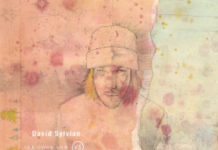By Mitch Rice
As musicians, our physical well-being is crucial to our ability to write, produce, and perform music. In order to maintain a long and successful career, it’s essential to prevent & manage common injuries that can hinder our musical journey. But just like your music, every person’s aches, pains, and injuries are unique. We’ll cover the most common injuries, why they occur, and how you can manage them to get your music career back on track.
Musculoskeletal Injuries
The nature of our craft is repetitive, meaning that the injuries that plague musicians are caused by repetition. These are the most common:
Hand and Wrist Injuries
Hand & wrist injuries are common among musicians and are the result of overuse, repetitive motions, and poor techniques. Here are the most common pains to be aware of:
- Tendinitis: Characterized by inflammation in the wrist & fingers, these tendons become inflamed & irritated from repetitive movements like playing piano and string instruments. It presents with swelling, pain, and overall discomfort, and can be managed while still playing music, but typically will only heal with rest.
- Carpal Tunnel Syndrome: Another condition triggered by overuse & poor technique, carpal tunnel syndrome occurs when the median nerve in the wrist is compressed, leading to pain, numbness, and weakness. It can be managed with stretching, foam rolling, and pain relievers, though it’s likely not going to improve without ample rest.
- Trigger Finger: After years of tightly gripping instruments, it’s common for your fingers to get stuck in a bent position. It will make a snapping & clicking sound when straightened and may make it difficult to play to the best of your ability. The pain can be dulled with anti-inflammatory medicines and managed with splints or cortisone injections.
Shoulder, Back, and Neck Injuries
Poor posture and prolonged sitting are the greatest contributors to back & neck injuries. Musicians are guilty of these too; and as a result, often experience:
- Strains & Sprains: Repetitive motions combined with improper posture put excess strain on muscles & ligaments in the back and neck, especially if you’re handling heavy instruments.
- Herniated Discs: The intervertebral discs in the spine can rupture or bulge, causing pain and potential nerve compression. This is most common in pianists, drummers, and cellists.
- Neck & Shoulder Tension: Almost every musician in the world experiences neck & shoulder tension because of sustained playing positions. Though your playing posture may take time to adjust, you can alleviate a great deal of tension by stretching, doing yoga, and getting regular massages.
- Rotator Cuff Tendinitis: Characterized by a dull pain and limited range of motion, violinists, guitarists, and trumpeters are the most common victims of this injury. It can be managed with pain meds, stretching, and rest.
Foot and Ankle Injuries
Foot & ankle injuries make it difficult to stand for entire concerts and play certain instruments. And almost all of these injuries are the result of improper footwear.
- Plantar Fasciitis: Plantar fasciitis is characterized by inflammation and pain in the plantar fascia, the tissue connecting the heel to the toes. Look for shoes that offer full arch support and ample cushioning so that you can keep playing without foot pain.
- Achilles Tendinitis: Repetitive stress on the Achilles tendon, especially for drummers, places undue stress on the back of the ankle, making it difficult to flex your ankle with the added pain & inflammation.
- Sprained Ankles: Less common than chronic injuries, but still prevalent, a sprained ankle can sideline you for days & even weeks. Whether you fall, trip, or jump & land awkwardly, it’s an injury that needs immediate treatment. Treat it with RICE (rest, ice, compression, and elevation), then protect it with a brace when you return to playing to prevent further injuries.
Hearing-Related Injuries
Musicians are at the greatest risk of developing hearing-related injuries, simply because of their constant exposure to loud music, concerts, and instruments over time. It’s crucial to protect our hearing to ensure a long and healthy musical career.
Noise-Induced Hearing Loss (NIHL)
Exposure to loud music and instruments can lead to permanent hearing loss. The cumulative effects of NIHL are significant, and prevention is vital. To limit damage, wear generic or custom-made musical earplugs to reduce sound exposure without sacrificing audio quality. You should also minimize sound levels during rehearsals and live performances if possible to limit the amount of strain on your ears.
Tinnitus
Musicians may experience tinnitus, a ringing or buzzing sensation in the ears, due to prolonged exposure to loud music and instruments. It’s also common among concertgoers, who should take equal precautions against tinnitus, a condition that can cause permanent hearing loss. To reduce the likelihood of the condition, or manage pre-existing tinnitus, wear ear protection, take frequent breaks, and limit your exposure to loud environments outside of music.
Hyperacusis
Hyperacusis is an increased sensitivity to sound, which can be distressing for musicians. To treat the condition, gradually reduce the sound of your live & recorded music over time to desensitize the ears. And whenever possible, wear noise-canceling headphones to limit your exposure to non-music related sounds.
Vocal Injuries
Vocal Strain and Fatigue
Vocal strains are the most common injury among singers & vocalists, and it occurs as a result of overuse of the muscles & vocal cords. After long days of recording & performing, your voice just simply can’t maintain the same output. To avoid waking up with a sore throat every week, make sure to warm up properly, hydrate plenty, and avoid any unnecessary strain on your throat outside of singing.
Vocal Nodules and Polyps
Vocal nodules & polyps are growths that form on the vocal cords as a result of vocal misuse or abuse. These can have a detrimental impact on a singers’ vocal quality, causing hoarseness, reduced range, and vocal fatigue. To prevent them, practice proper vocal techniques, breath control, and vocal warm-ups. This will prepare you to hit long, high notes without damage. Additionally, make sure to rest your voice outside of music, limiting your yelling & screaming whenever possible.
You know better than anyone that your musical talents depend on your physical health, as well as your mental health. As such, you must do everything in your power to protect your hands, feet, and voice to maintain your abilities. Whether it’s a minor wrist ache, sharp neck pain, or painful foot condition, taking proactive steps to prevent and manage these injuries is crucial. You can extend your musical career by years simply by taking care of your body, and giving it the necessary treatment when something hurts. Stay healthy, keep making music, and enjoy your musical pursuits to the fullest.
Data and information are provided for informational purposes only, and are not intended for investment or other purposes.






